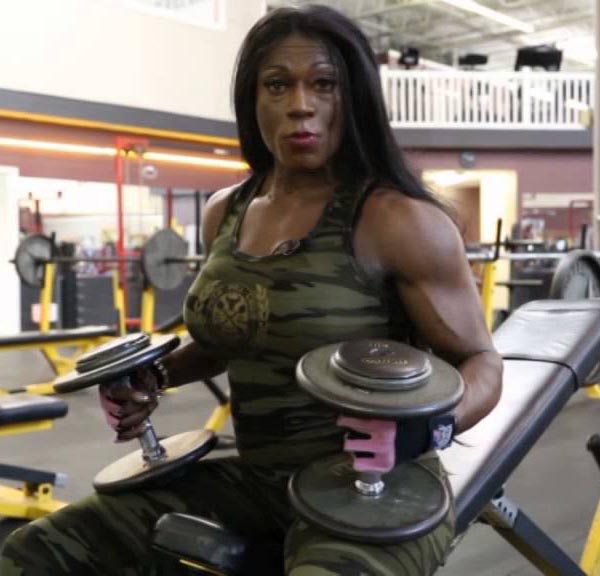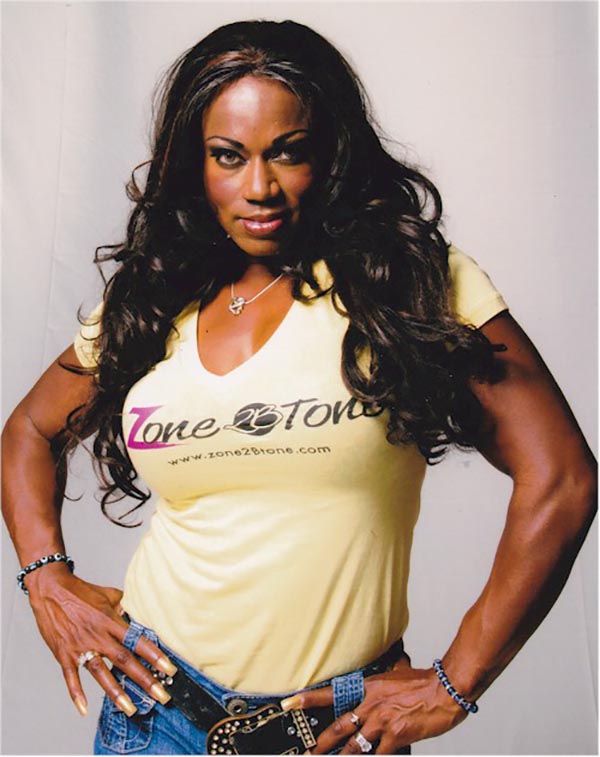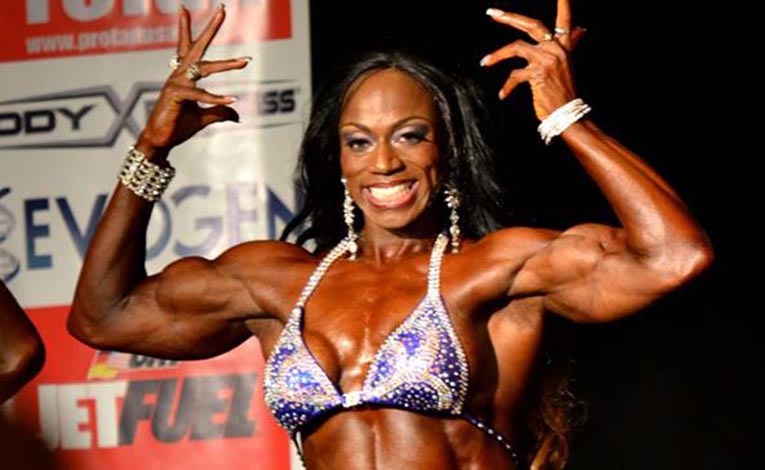At 50, Tracy Hess has become a legend in local and regional women’s physique competitions.
The Southampton mother of three also is well-known from her high-stepping majorette days and as an Eagles cheerleader. She also hosts a YouTube fitness lifestyle show, Zone2BTone.
This weekend, she will fulfill another dream as a contestant in the Arnold Classic in Columbus, Ohio. “The Arnold Classic is the Super Bowl of women’s physique competitions,” an effervescent Hess told me.
This is especially so with the cancellation last year of the Ms. Olympia contest. There was a lot of controversy in the bodybuilding world around what some view as the overly masculine bodies and faces of competitive female bodybuilders. The Arnold Classic features a variety of competitive categories developed by the International Federation of Body Building and Fitness for men and women, some requiring more developed muscles than others.

Hess will compete in women’s physique, a new division “designed for women who were not as muscular as women’s bodybuilders – a more athletic, pleasing physique … it’s a prettier look.”
She views the Arnold Classic as an opportunity of a lifetime. When I asked her how she felt about competing with women half her age, she confidently replied: “It’s not your age, it’s your conditioning that matters. I am not at all intimidated by competing against 25- and 30-year-olds . . . and, being seasoned, I have more mature muscle, which is an advantage.”
Hess is a real trooper, though she gives much of the credit not to herself but to her fiance, Steve Webster, and her three children – her daughter’s 22 and her twin sons are almost 21 – who she says make up her team.
Even a seemingly solitary sport like women’s physique training requires help. It just goes to show that no one of us is an island, and that there’s a supportive team behind every successful athlete.
Ever considered getting serious about physique competitions?
Here are some insights from Tracy.

When did you get started?
Tracy: I had put on a tremendous amount of weight during my pregnancies and wanted to desperately lose it. After trying everything and failing … I was inspired by female bodybuilders in a magazine. That was in the mid 1990s.
Me, too! Gladys Portugues’ book Hard Bodies did it for me. I read her book from cover to cover. But weightlifting and competing in physique competitions are very different things. How did you begin your preparation for this competition?
Tracy: Well, my precontest weight was 178 pounds, and I had about 10 weeks to prep. My contest weight will likely be around 140 pounds. In addition to diet, I do about two hours of cardio daily, train for about 45 minutes, and spend another hour or so on posing.
That’s a lot of work – four to five hours a day! Clearly, you love women’s physique competitions. Why?
Tracy: I love it because I like being an athletic woman, and if you have the dream, the drive, and keep suffering, you can do it!
Suffering?
Tracy: You know, suffering is – you’re really giving up a lot. Not going to parties. Your life is pretty boring, set around the gym and cardio and diet. That’s suffering to me. You sacrifice a lot.
I was surprised to hear about the demise of the Ms. Olympia competition. I remember back in the late ’80s and ’90s when it was really big, and women like Cory Everson and Lenda Murray were the queens. What do you think about all the changes in women’s bodybuilding competitions and its current evolution?
Tracy: Now they don’t want the women to get too big. Basically, women’s bodybuilding has been phased out and replaced with women’s physique competitions. I like it and the fact that it is more athletic, more about symmetry, and more feminine.
Tracy, women have to train tremendously hard and diet even harder to lean out for these competitions. Going after the highest achievement in women’s physique competitions already makes you a winner! Best of luck, and I hope you bring home the gold at the Arnold Classic.
Tracy: I hope I can be a role model to let women know that it can be done. With children, or anything in life that happens and make us feel we can’t do something – you can make your goals. Any dream you have, you can do it.
Courtesy of: Philly.com

Comments are closed.